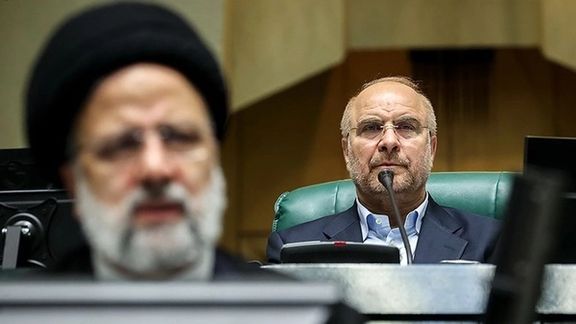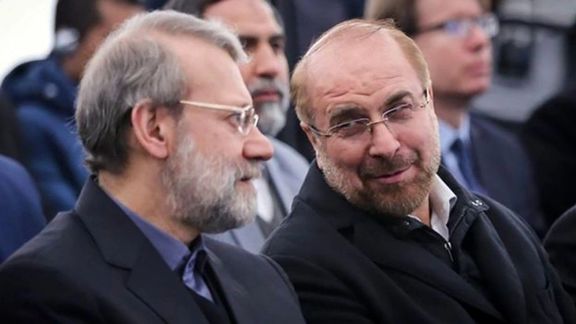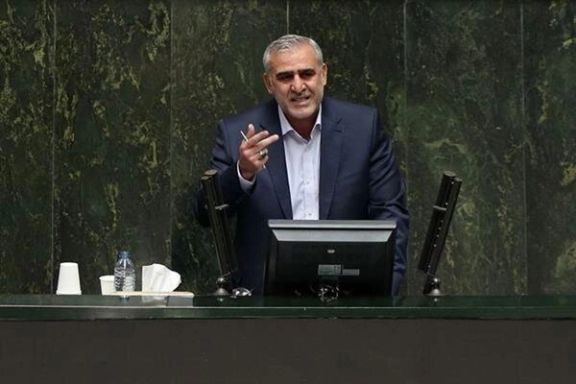Iranian Politicians Share Blame For Deepening Crises, Insiders Say

A politician close to Iran’s former Speaker Ali Larijani blames the current leader of the parliament for Iran's woes, shared with his ultraconservative rivals.

A politician close to Iran’s former Speaker Ali Larijani blames the current leader of the parliament for Iran's woes, shared with his ultraconservative rivals.
Speaking particularly about the way the Hijab Enforcement bill was handled by the parliament (Majles), Behrouz Nemati said in an interview with Khabar Online website that Speaker Mohammad Bagher Ghalibaf should accept his responsibility for handing over decision making about the bill to a committee of 15 lawmakers rather than putting it to vote by all the 290 lawmakers.
The entire Majles, including Ghalibaf are responsible for this non-democratic act, Nemati argued, one day after The Speaker criticized the Paydari party-dominated government in a bid to distance himself from the ultraconservative party and its members at the Majles. Nemati further reiterated that Ghalibaf cannot evade his responsibility for the developments at the parliament.
Nemati also cautioned against government officials manipulating data to exaggerate President Ebrahim Raisi's "achievements."
The presidential administration, which is harshly criticized for mishandling the economy and weak governance, has been making outrageous claims about reducing inflation, boosting employment and improving living standards, while tens of millions have sunk deeper into poverty.

Furthermore, Nemati discussed Ali Larijani's disqualification during the 2021 presidential election, alleging that the Hojjatieh Association, acting like a powerful clan, influenced his disqualification despite his 12-year tenure as the Majles Speaker.
Hojjatieh is a fundamentalist Shia group known for its fanaticism. Even Supreme Leader Ali Khamenei does not want to appear too close to them.
Now, Larijani hesitates to announce his candidacy for the March 2024 parliamentary elections due to concerns that the Guardian Council may disqualify him once more. Ultimately, the Council obeys Khamenei, and only his approval can secure Larijani's candidacy.
Regarding the upcoming elections, Nemati mentioned that approximately 800 reformists have registered to run. These candidates include conservatives aligned with Expediency Council member Mohammad Javad Bahonar, moderate conservatives close to Larijani and former President Hassan Rouhani, as well as neo-cons affiliated with Ghalibaf - all competing against the ultraconservative Paydari Party members.
In an interview with Rouydad24, lawmaker Morteza Mahmoudvand remarked that "Iranian politicians lie about their affiliation. They lie about being conservative or reformist. They all equally benefit from government resources."

Nonetheless, he asserted, "There are infiltrators among government officials who aim to facilitate a regime change." However, he refrained from naming specific individuals, but emphasized, "Politicians hold the people's livelihood hostage to their factional interests. They should realize that without these disadvantaged citizens, there would be no country or Islamic Republic."
Mahmoudvand added that a large part of the problems in the country are created by politicians who belong to the leading political factions. They keep blaming the opposite camp for existing difficulties that might have been created even by themselves. This is childish, he said.
He expressed deep disappointment that in a country as resourceful as Iran, its citizens are unable to afford medical treatment. He criticized government officials for refusing to admit their shortcomings and the ineffectiveness of their management approach.